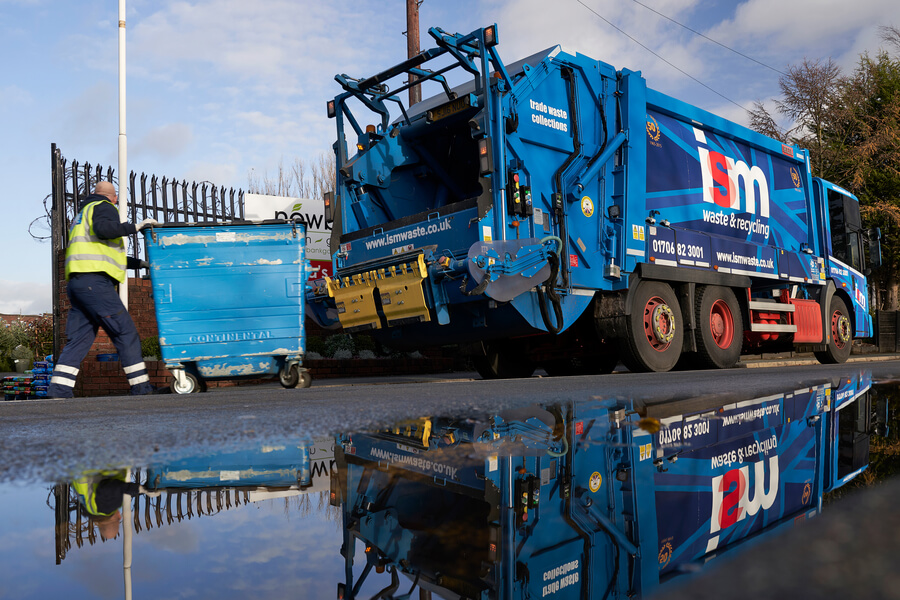
Waste and the correct handling of it is an issue for all of us. We all create waste in one way or another, and that means we are all should be responsible for what happens to it. It all needs to be managed in the safest way possible to protect us and the environment.
Even as householders, we have responsibilities for our rubbish disposal, so we all have a duty of care responsibility. Usually, this means putting our general waste and recycling out for collection by our local council. Mostly domestic waste is now dealt with responsibly, so it doesn't harm the environment.
All businesses create some sort of waste that also needs collecting and taking away for onward disposal, treatment and recycling.
Because of this, all businesses that outsource their waste management need an appropriate and licensed refuse collection service. Waste management companies collecting and transporting waste on behalf of others, such as local councils and private collection companies, have a legal Waste Duty of Care.
For any businesses wanting to transport their own waste to a disposal facility, they must have a waste carriers licence registered with The Environment Agency. The easiest option for companies is to have a registered waste management company with an upper tier waste carriers licence to handle any waste produced in the workplace.
The waste duty of care code of practice explains how to manage different types of waste safely. The primary purpose of the waste duty of care is to ensure waste is dealt with safely and securely to protect human health and the environment.
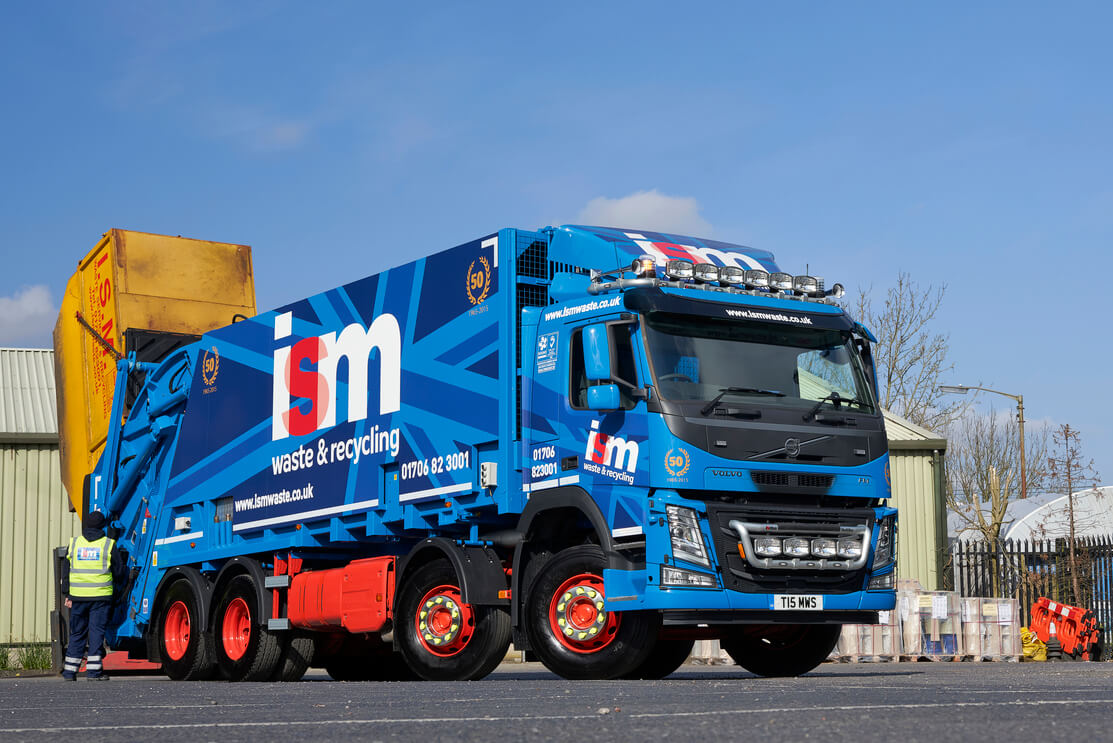 Environmentally-friendly Euro 6 HGV collecting waste from a customers site. Our waste carriers licence covers us to collect waste.
Environmentally-friendly Euro 6 HGV collecting waste from a customers site. Our waste carriers licence covers us to collect waste.
- Duty of Care Overview
- Understanding Different Types of Waste
- Who Does The Waste Duty of Care Apply To?
- Dealing with your waste correctly
- Waste Transfer Notes
- Waste Storage
- Hazardous Waste
- Legislation Documents
What is The Waste Duty of Care?
The waste duty of care law applies to anyone that is a holder of controlled waste. A holder of "controlled waste" is simply anyone who imports, produces, carries, keeps, treats, disposes of waste. It also applies to those who are dealers or brokers that have control of, controlled waste. It essentially applies to all organisations, so we all need to be aware of how to be compliant and make sure we stick to it.
Controlled waste is a broad term that covers an extensive range of different types of rubbish from household, commercial or industrial waste. Most of the waste we encounter regularly will fall into this category.
The main kinds of waste that don't come under controlled waste are waste produced form agriculture, mines, queries, explosives and most radioactive waste.
Our guide explains how to comply with the waste duty of care. It describes how to segregate waste and store your waste safely, who can deal with and transport your rubbish and recyclables, and the records/document you must keep.
Understanding Different Types of Waste
To understand what your duty of care is for and why it's essential for the environment and human health, you need to know about waste, the different types, which types of waste are recyclable and how the diverse classes of waste need to be disposed of safely.
The term "waste" is a broad term because it covers a wide verity of different materials but is generally refers to anything that you discard, intend to discard or are items that require disposal.
Waste is then broken down further into two main categories, commercial and domestic. Business, trade or industrial waste is any material disposed of by any organisation, whether for profit or not, and it applies to both public or private organisations. Domestic waste is waste generated by households and usually dealt with by your council collections unless you need private skip hire for large amounts of waste.
Commercial waste, on the other hand, is dealt with differently to household waste and is usually handled by a waste management company and taken to a waste transfer station.
Common examples of waste and recyclables include:
- Used packaging
- Paper and cardboard
- Metal
- Plastic
- Glass
- Rubble, timber and, plasterboard from demolition
- WEEE waste (old electrical equipment)
- Food
Once a substance has become waste, it will remain waste until it has been recovered or recycled and no longer poses any threat to the environment or human health. When something becomes waste, it becomes more strictly regulated and has to comply with the legislation.
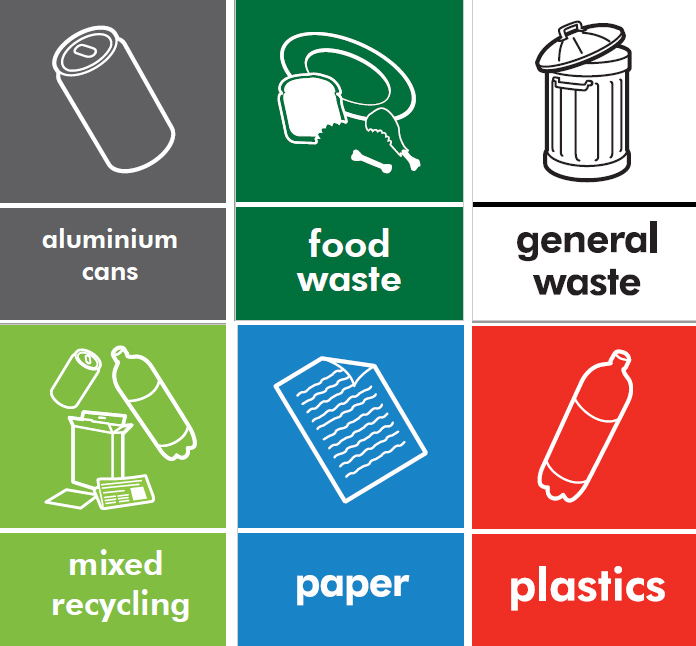
Who Does The Waste Duty of Care Apply To?
Anyone dealing with waste at any stage from production to treatment has to ensure that it is managed correctly. Whether you produce, import, store, transport, treats or disposes of waste, you must take all reasonable steps to guarantee that waste is managed correctly to comply with the waste duty of care. The waste duty of care is imposed under Section 34 of the Environmental Protection Act 1990. Breaching your duty of care is an offence and could lead to a fine with no upper limit if convicted in court. It is important to make sure different waste types go in the correct bins and to know how to dispose of waste correctly.
As a waste producer, any person or organisation whose activities produce waste needs to comply with the waste duty of care code of practice.
- Private sector companies - shops, offices, factories
- Tradespersons (electricians, builders, and plumbers)
- Public sector - schools and hospitals
- Charities and community groups
Dealing with Your Waste Correctly
You MUST ensure that anyone who manages your waste has the proper permit and documents.
Your waste management company or transporter of your waste has to be registered with The Environment Agency; and anyone who recycles, treats, stores, reprocesses or disposes of your waste must have:
Different types of organisations may be authorised to collect your waste that includes:
- Waste contractors
- Waste management companies
- Scrap metal traders
- Recycling businesses
- Local council
- Skip hire companies
You MUST check that your waste carrier has valid registrations and you need to keep evidence of doing this so you can prove you have checked if needed.
To be sure, ask to see the waste carrier's certificate of registration or a certified copy of it, which will show when their certification is in date. Photocopies of the original documents do not provide evidence of registration. You can, however, take a photocopy of the certificate for your records, date it and write on it that you have seen the original up to date version.
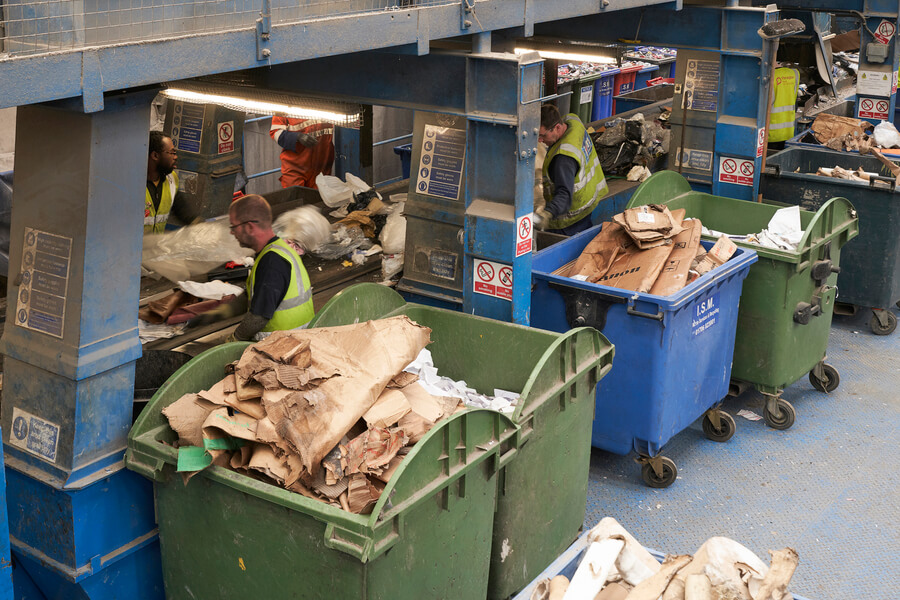 All waste at ISM Waste & Recycling is dealt with correctly in our state-of-the-art, licenced waste management and recycling facility.
All waste at ISM Waste & Recycling is dealt with correctly in our state-of-the-art, licenced waste management and recycling facility.
Waste Transfer Notes
A waste transfer note is a document that details the transfer of waste from one person or organisation to another. They are used as a way of keeping records of all waste to ensure disposal is carried out correctly.
A duty of care waste transfer note is required for every load of rubbish you receive or pass on to others. There are few exceptions to the rule; one being when you receive household waste directly from the householder who produced it; however, a waste transfer note would be required if you were to pass that waste to someone else.
Waste transfer notes are a simple way to ensure that there is a clear record from when the waste is produced until it is disposal. You must keep copies of all your WTN's for at least two years or longer and must be able to provide copies of them on demand to your environmental regulator or local council, or you could receive a fine.
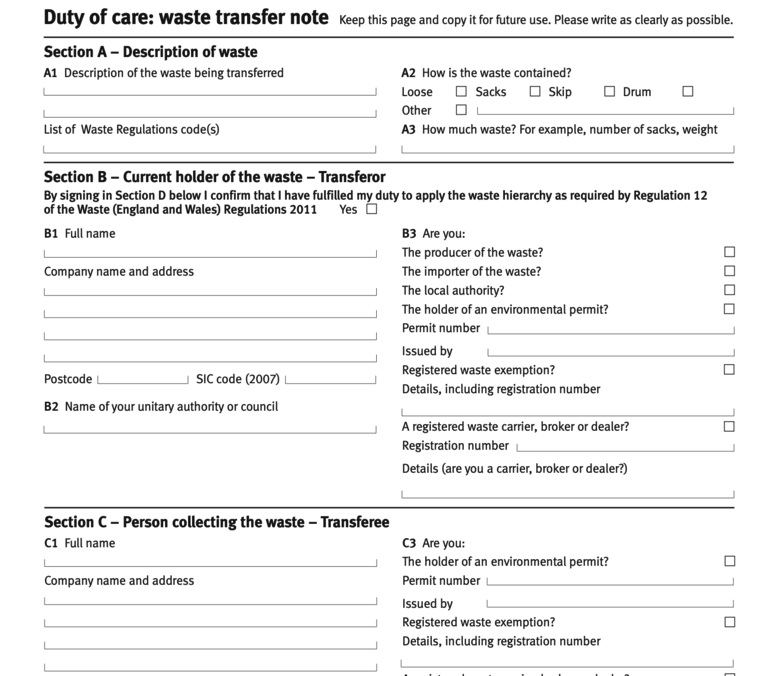
How to Fill in a Waste Transfer Note
A waste transfer note must include:
- A description of the waste including the amount and the type of container it's kept in
- The correct EWC code (European Waste Catalogue)
- The SIC code of the current holder of the waste
- Tick box to state that the waste hierarchy has been considered
- Details about the current holder of the waste
- Information on the collector of waste and where it is being transported to
- Signature by both parties and the document must be kept for at least two years
It is an absolute must to check that anyone you pass your waste on to has the relevant registration, permit for the type of waste you give to them. Having a professional waste management company to deal with your waste is just one of the many reasons why waste management services are beneficial to businesses.
Storing Waste Correctly
All waste has the potential to pollute and damage the environment if it's not handled or stored correctly. The ideal solution for dealing with waste is in either skips or wheelie bins provided by a waste management/skip hire company.
If you are storing other people's or companies waste on your site, you may need a waste management licence to comply with the duty of care and waste legislation.
All waste materials must be safely and securely stored in suitable, well-maintained waste containers (Skips and wheelie bins). It is good to have correctly labelled all the containers clearly with their contents (e.g. dry mixed recycling, cardboard, wood) so that the right waste types are stored in the correct individual containers.
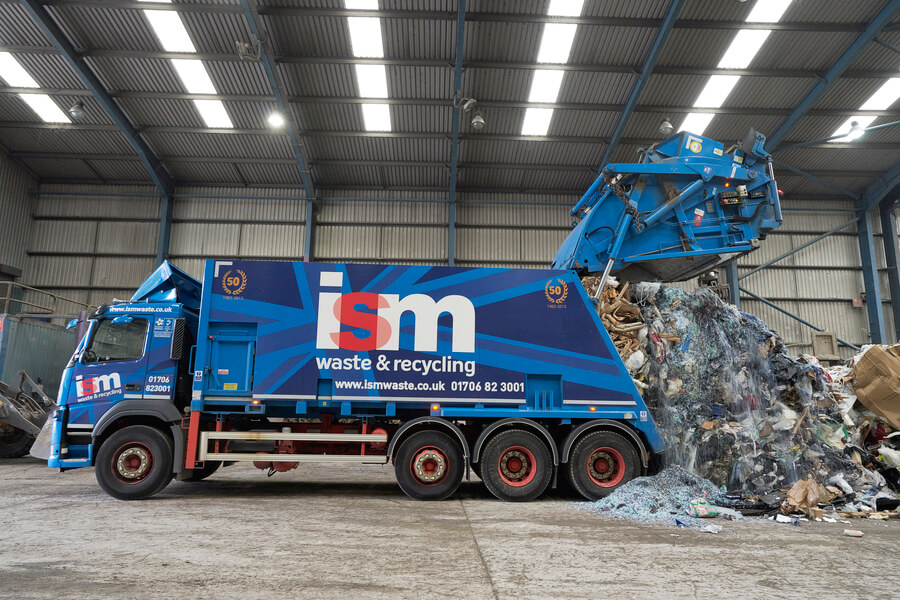 Putting the right materials in the proper containers prevents contamination of different waste types.
Putting the right materials in the proper containers prevents contamination of different waste types.
Ensure that waste cannot blow away. If you store waste in skips or other similar containers, ensure that they are covered, lidded or netted. Store waste under cover, reduced exposure to the elements will prevent it from being reused, or cause contaminated run-off.
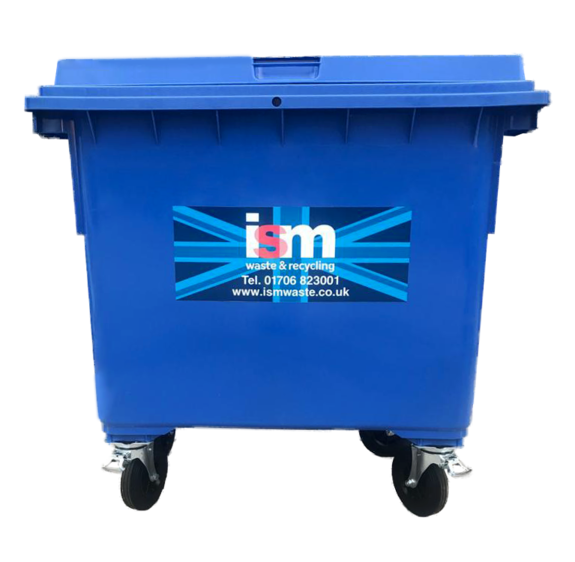 Lockable wheelie bins prevent rubbish from blowing away and prevent non-compliant waste from getting in the containers.
Lockable wheelie bins prevent rubbish from blowing away and prevent non-compliant waste from getting in the containers.
Hazardous Waste
Hazardous waste has properties that can make it harmful to human health. This could be an oxidising agent, flammable, irritant, harmful, toxic, carcinogenic, corrosive, infectious, mutagenic or toxic. This does not necessarily mean it is an immediate risk to human health, although some hazardous waste can be highly dangerous.
It's illegal to mix a hazardous waste with either non-hazardous or another hazardous waste.
The List of Wastes or European Waste Catalogue lists approximately 650 different waste types. Those that marked with an asterisk are considered hazardous and need to be dealt with in more specific ways.
When hazardous waste is moved, it must be accompanied by the correctly completed paperwork known as a consignment note. The note has to be prepared before the hazardous waste is moved.
A note is required for all movements of hazardous waste, including:
- Collections by registered waste carriers
- Movements from one location to another even within the same business
- Moving waste from customer sites
The occasions a consignment note is not needed to when moving hazardous waste for a domestic property. However, there is a need for a consignment note if that waste is asbestos.
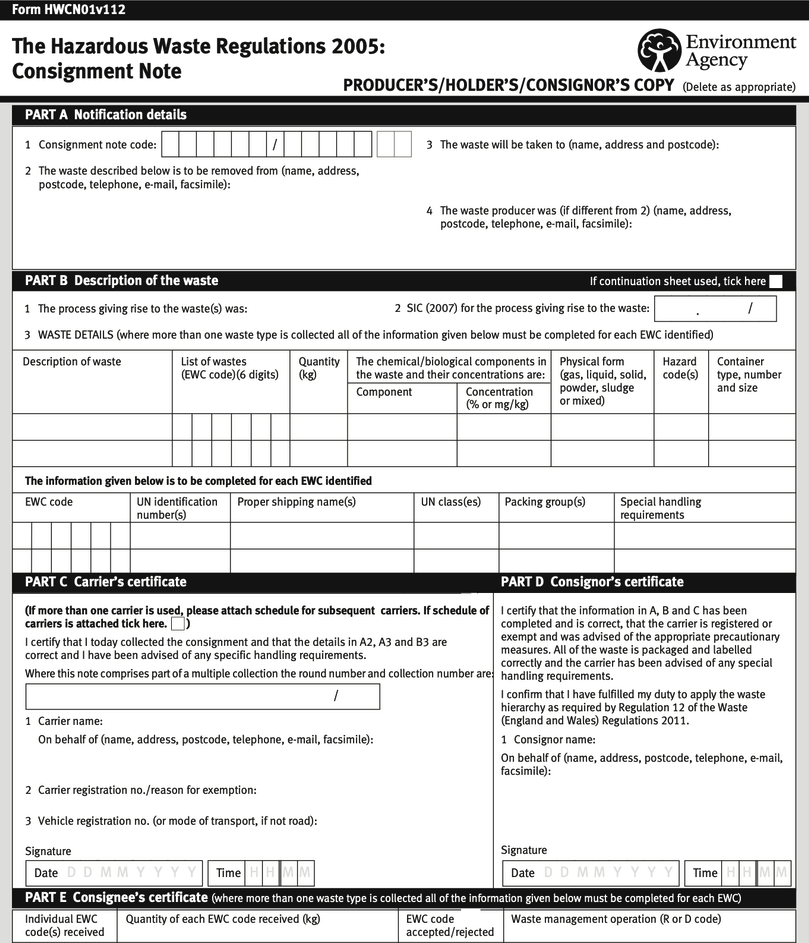
How to Fill in a Waste Consignment Note
A consignment note must include:
- A consignment note code
- A description of the waste including the EWC codes and hazardous waste codes
- Details about the carrier's certificate
- Consignor's and consignee's certificate
Duty of Care and Waste Regulations Documents
Read more about the waste regulations to check if you're fully compliant.
ISM Waste & Recycling
Here at ISM Waste & Recycling, we ensure all of our customers are compliant with the waste duty of care policy. Duty of care compliance is very important to us and, our award-winning waste management services comply with all waste management legislation, and we are a fully licensed waste management company. If you would like more information about our waste services, check out our services page or if you have any questions about our services, don't hesitate to get in touch, we can help with all types of waste removal.
Waste Management Services
Contact Us
Written by James Kay
james.kay@ismwaste.co.uk
